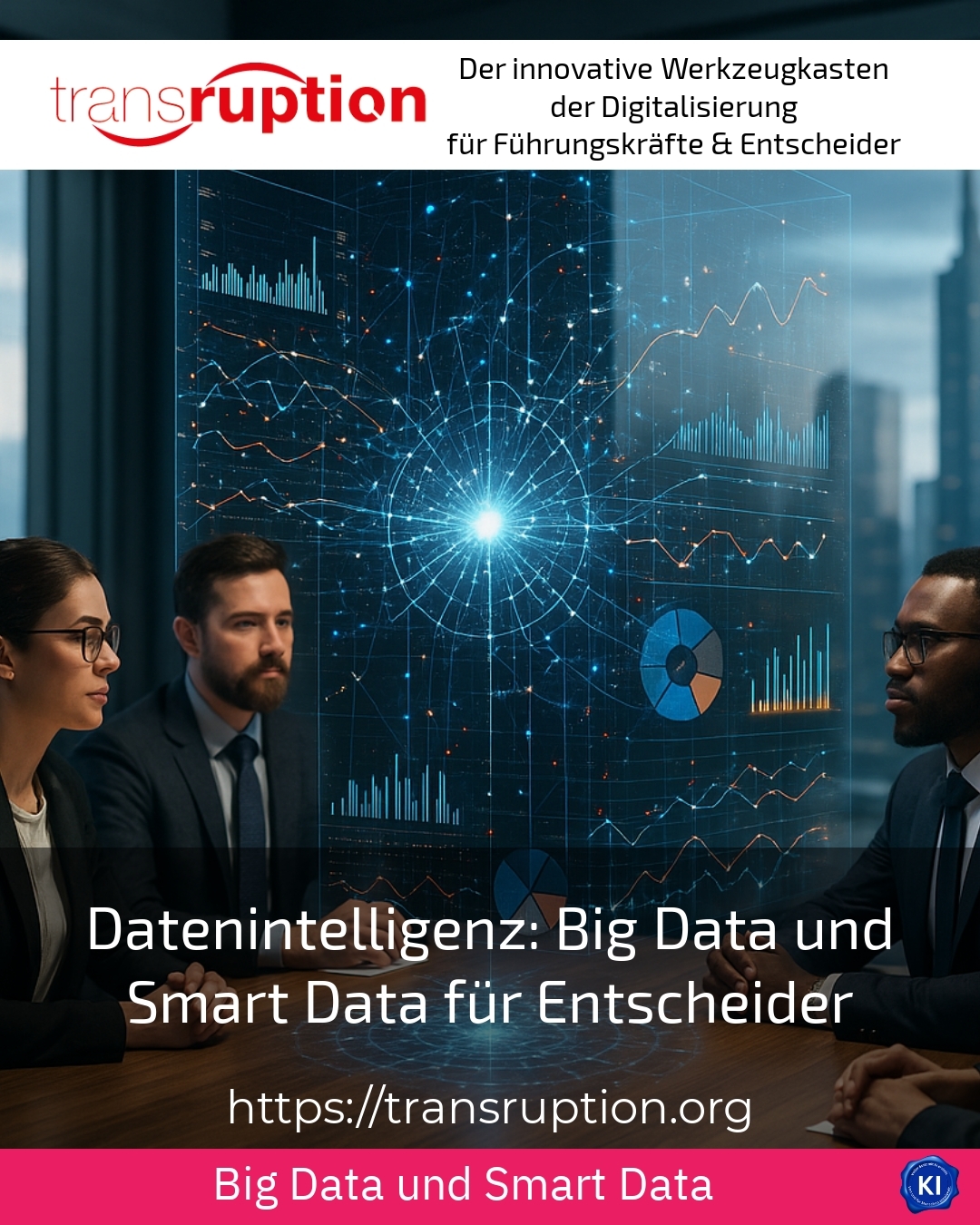In the age of digital transformation, the topic of Data intelligence is becoming increasingly important for decision-makers in companies. Large amounts of data, often referred to as big data, offer numerous opportunities, but it is the targeted analysis and processing of so-called smart data that provides efficient and effective support for well-founded decisions. This blog article will help you to understand the complex relationships between big data and smart data and shows practical examples from various industries.
Data intelligence and the relevance of big data
Big data refers to the enormous amount of different types of data that are generated worldwide every day. This includes, for example, transaction data in the financial sector, social media interactions, measured values from Industry 4.0 and sensor data in connected vehicles. Decision-makers are faced with the challenge of not only storing this flood of data, but also utilising it sensibly.
A retail company can identify valuable patterns from millions of customer interactions if it succeeds in filtering out the right information. This is the only way to create targeted marketing strategies that cater to the needs of specific customer segments. In the manufacturing industry, data analyses help to predict machine failures and optimise maintenance plans - so-called predictive maintenance.
Without Data intelligence these large and often unstructured amounts of data go unnoticed or are even confusing. Intelligent methods are therefore required to filter the data in such a way that it can generate economic benefits.
Smart data: from raw material to valuable insights
While big data is primarily characterised by its high volume, smart data focuses on quality, relevance and usability. Smart data is created by algorithms that process large amounts of data in such a way that truly usable and targeted information is extracted.
In the automotive industry, for example, sensor data is processed in such a way that only relevant vehicle condition information is analysed. This enables a more precise diagnosis of problems and predictive planning of workshop visits.
Smart data is also of great value in the healthcare sector. The intelligent analysis of patient data, laboratory results and wearable data gives doctors the opportunity to customise treatment approaches and make them more efficient, which also helps to reduce costs.
The interplay between big data and smart data is therefore crucial for an effective Data intelligence, which supports companies in gaining tangible insights from the flood of data.
Practical examples from various industries
1 In e-commerce, modern analysis tools use smart data to identify the exact type of customer and optimise offer campaigns in real time, which significantly improves the conversion rate.
2 In logistics, companies use intelligent data to dynamically control supply chains. Routes can be adapted based on traffic and weather data in order to shorten delivery times and reduce costs.
3. the energy sector benefits from smart data by analysing consumption patterns and controlling energy flows in real time. This supports sustainable and efficient energy supply systems.
Specific tips for decision-makers on the use of data intelligence
Decision-makers should understand that it is not the sheer quantity of data that is decisive, but the quality of the data and its targeted use. The following impulses can promote the implementation of data intelligence:
- Systematically drive forward the integration of data from different sources in order to create the most comprehensive and consistent information basis possible.
- Use algorithms and machine learning models to quickly extract precise smart data from big data and analyse it automatically.
- Establish clear data governance that guarantees data protection and data security while ensuring data quality.
- Involve specialist departments in the design of data-driven projects at an early stage so that the findings are precisely tailored to the decision-making processes.
- Rely on visualisation tools so that the insights gained can be presented in an understandable way and quickly translated into measures.
This approach helps companies to transform the often complex data streams into valuable impulses for the business.
BEST PRACTICE at the customer (name hidden due to NDA contract)
In the production industry the implementation of data-intelligent applications led to a significant reduction in downtimes. Thanks to real-time data collection and automated analyses, maintenance could be planned precisely. This reduced the number of unplanned downtimes, which significantly increased product quality and efficiency.
Data intelligence: shaping the digital future intelligently
The transition from big data to smart data is a key to successful digital transformation. Only those who manage to analyse data intelligently and use it in a targeted manner can realise competitive advantages and develop innovative business models.
The close interlinking of data quality, security and user-orientation creates a sustainable Data intelligence, which helps decision-makers to stay on the right course even under highly complex conditions.
My analysis
Today, data intelligence is more than just a buzzword. It describes a necessary change from an unmanageable jungle of data to actionable insights that can decisively advance companies in all sectors. Big data provides the raw material, but it is only through smart data that the information unfolds its potential. Decision-makers who actively shape this path create a sound basis for efficient processes, innovative products and a customised customer approach.
Further links from the text above:
[1] What is smart data - B2B smart data
[2] Big data vs. smart data - netconomy
[3] Data intelligence: Big data and smart data for decision-makers - Sauldie
[5] Smart data: definition, application and difference to big data - o2business
[11] Data intelligence: clever use of big data and smart data - Sauldie
For more information and if you have any questions, please contact Contact us or read more blog posts on the topic TRANSRUPTION here.















